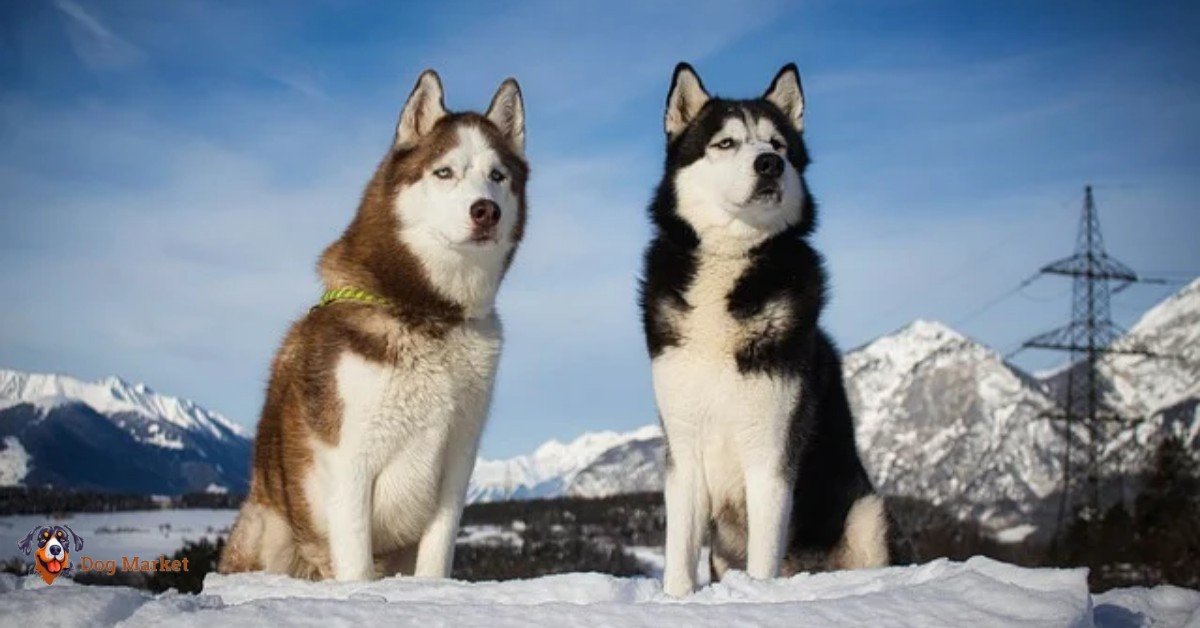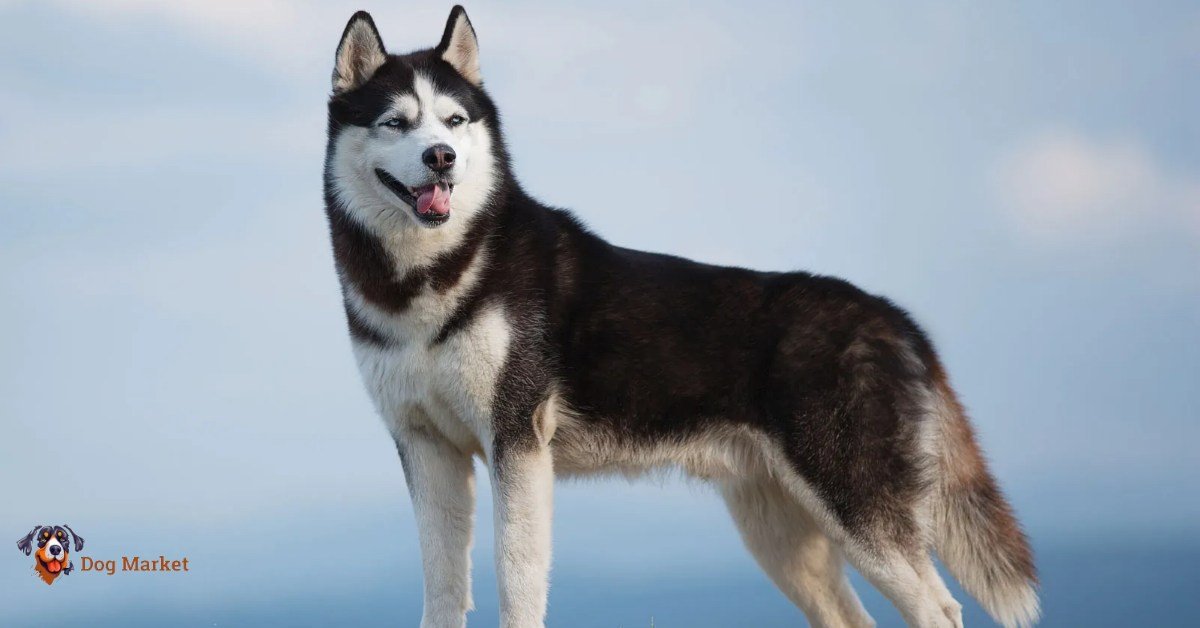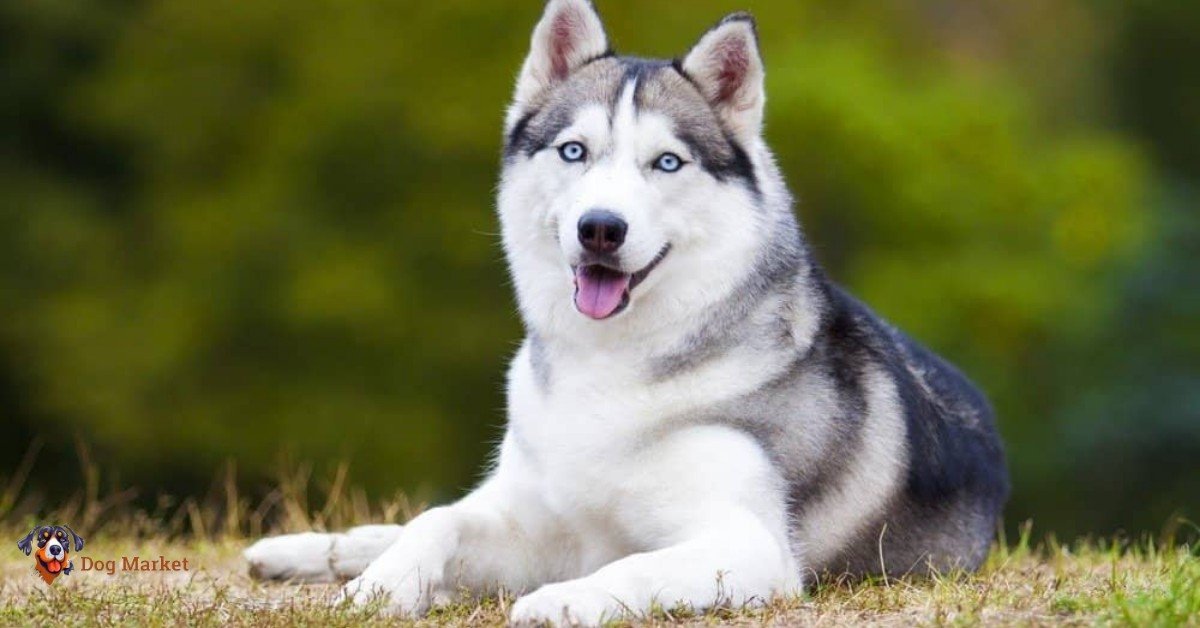Siberian Huskies are one of the most recognizable and captivating dog breeds, known for their striking appearance and unique personality. Originating from Siberia, these dogs were originally bred by the Chukchi people to pull heavy sleds across the harsh Arctic terrain.
Over time, they have become popular not only for their impressive work ethic but also as loving and loyal family pets. In this comprehensive guide, we will explore detail information about Siberian Huskies, from their history,Siberian Husky price, characteristics and Pros and cons of Owning this breed.
Siberian Husky Price in IndiaProspective buyers in India should expect to pay between ₹40,000 and ₹1,00,000 for a Siberian Husky. The Siberian Husky price fluctuates based on considerations like the dog’s pedigree, coat color, and the reputation of the breeder. |
Factors Affecting the Price of Siberian Husky
Lineage and Pedigree: The lineage of a Siberian Husky significantly influences its price. Puppies from champion bloodlines or with prestigious pedigrees may command a higher price due to the assurance of certain desirable traits.
Breeder Reputation: Reputable breeders who prioritize health, temperament, and proper breeding practices often charge higher prices. Their dedication to maintaining breed standards and ensuring the well-being of the puppies contributes to the overall cost.
Health and Vaccination Status: Siberian Huskies with up-to-date vaccinations and a clean bill of health typically come with a higher price tag. Responsible breeders invest in veterinary care for their litters, reflecting in the overall cost.
Color and Markings: Unusual coat colors or distinctive markings can influence the price of a Siberian Husky. Puppies with rare or sought-after patterns may be priced higher than those with more common appearances.
Geographical Location: Prices can vary regionally based on factors such as demand, availability, and the cost of living. Metropolitan areas or regions with limited Siberian Husky breeders may see higher prices compared to areas with a surplus of breeders.
Breeding Purpose: Siberian Huskies bred for specific purposes, such as show or sled work, may have different pricing structures. Dogs intended for competitions or specialized tasks may be priced higher due to the selective breeding and training involved.
| Location | Price Range (INR) |
| Siberian Husky price in Bangalore | Rs 45,000 to Rs 70,000 |
| Siberian Husky price in Chennai | Rs 40,000 to Rs 70,000 |
| Siberian Husky price in Coimbatore | Rs 40,000 to Rs 70,000 |
| Siberian Husky price in Delhi | Rs 45,000 to Rs 70,000 |
| Siberian Husky price in Kolkata | Rs 40,000 to Rs 60,000 |
| Siberian Husky price in Kerala | Rs 40,000 to Rs 60,000 |
| Siberian Husky price in Lucknow | Rs 40,000 to Rs 65,000 |
| Siberian Husky price in Mumbai | Rs 45,000 to Rs 70,000 |
| Siberian Husky price in Nagpur | Rs.1,000 to Rs.50,000 |
| Siberian Husky price in Pune | Rs 40,000 to Rs 70,000 |
| Siberian Husky price in Punjab | Rs 40,000 to Rs 70,000 |
| Siberian Husky price in Tamilnadu | Rs 35,000 to Rs 65,000 |
Overview of Siberian Husky
Origins and History
The Siberian Husky boasts a rich history rooted in the harsh landscapes of northeastern Siberia. Originating from the Chukchi people, these dogs were selectively bred for their stamina and strength to pull sleds over vast frozen terrains.
The Chukchi’s reliance on these remarkable canines for survival eventually led to their introduction in Alaska during the Gold Rush.
Renowned for their resilience and endurance, Siberian Huskies played a crucial role in shaping the Arctic way of life. Over time, these dogs found their way into the hearts of people worldwide, evolving from working companions to beloved family pets.
Appearance
The Siberian Husky’s appearance is nothing short of breathtaking. With a striking double coat, erect triangular ears, and distinctive markings, these dogs exhibit an undeniable allure.
Their fur, which comes in various colors and patterns, is thick and designed to withstand harsh climates. The breed’s characteristic blue or multicolored eyes, often accompanied by a captivating facial mask, contribute to their unique and wolf-like aesthetic.
Siberian Huskies possess a well-balanced build, conveying both strength and agility, a testament to their history as sled-pulling dogs in the Arctic.
Temperament and Activities
Siberian Huskies are renowned for their friendly and outgoing temperament. Affectionate and loyal, they thrive on social interactions with both humans and other dogs.
This breed is highly intelligent but can also exhibit an independent streak, making early and consistent training essential. Their high energy levels require regular exercise, and activities such as running, hiking, and even pulling sleds provide the mental and physical stimulation they crave.
Engaging in such activities not only keeps them fit but also taps into their innate desire for purposeful work.
Personality and Behavior
The Siberian Husky’s personality is a delightful mix of playfulness, curiosity, and a touch of mischief. Known for their “talkative” nature, they often express themselves through howling and unique vocalizations.
Despite their friendly demeanor, Huskies can display an independent spirit, requiring owners to establish themselves as confident leaders through positive reinforcement training.
This breed tends to form strong bonds with their families and, while not typically aggressive, may not make the best guard dogs due to their sociable nature.
Understanding and appreciating the Siberian Husky’s unique blend of traits is key to fostering a harmonious relationship with these captivating companions.
Types of Siberian Husky dog Breeds
Siberian Huskies are recognized for their striking appearance and diverse coat colors, but there are specific variations within the breed. While all Siberian Huskies share common traits, some distinct types have emerged based on factors such as coat color, markings, and lineage.

Agouti Huskies: These Huskies have a unique coat pattern known as agouti, featuring a mix of light and dark bands of color. This gives them a distinctive and eye-catching appearance.
Red Siberian Huskies: Characterized by a predominantly red coat, these Huskies can range from deep red to lighter shades. Their striking coloration makes them stand out within the breed.
Black Siberian Huskies: This type showcases a solid black coat, often with white facial markings. The contrast between their dark fur and bright blue eyes is particularly striking.
Gray Siberian Huskies: With various shades of gray, these Huskies exhibit a classic coloration. The combination of gray fur and blue eyes contributes to their characteristic and mesmerizing look.
Piebald Huskies: This type features a predominantly white coat with distinctive patches of color. The irregular patterns add an extra layer of uniqueness to their appearance.
Sable Siberian Huskies: Sable coats display a mix of colors, often with a darker overlay on a lighter base. The result is a beautiful and dynamic color pattern that sets them apart.
Health Issues of Siberian Husky
While Siberian Huskies are generally a healthy breed, they are prone to specific health issues that prospective owners should be aware of:
Hip Dysplasia: Like many medium to large breeds, Huskies can be susceptible to hip dysplasia, a genetic condition where the hip joint doesn’t fit properly into the hip socket, leading to arthritis over time.
Eye Conditions: Siberian Huskies are prone to certain eye issues, including cataracts and progressive retinal atrophy (PRA). Regular eye check-ups are crucial to detect and address these conditions early.
Autoimmune Disorders: Some Huskies may develop autoimmune disorders, such as hypothyroidism or lupus. Regular veterinary check-ups and monitoring for unusual symptoms are important for early diagnosis.
Skin Conditions: Due to their dense double coat, Huskies can be prone to skin conditions, including allergies and dermatitis. Proper grooming and a balanced diet can help manage these issues.
Genetic Conditions: Inherited conditions, such as juvenile cataracts or certain neurological disorders, can occur in some Siberian Huskies. Responsible breeding practices can reduce the risk of these issues.
Heat Sensitivity: Siberian Huskies are bred for cold climates, and they can be sensitive to high temperatures. Owners should take precautions during hot weather to prevent heat-related illnesses.
Maintenance Cost of Siberian Husky
Owning a Siberian Husky comes with not just the initial purchase price but also ongoing maintenance costs to ensure their well-being and happiness. Understanding these costs is crucial for responsible pet ownership.

Feeding Expenses: Siberian Huskies have specific dietary needs, and high-quality dog food is essential to maintain their health and energy levels. On average, the monthly cost of feeding a Husky can range from ₹2,500 to ₹5,000, depending on the brand and dietary requirements.
Grooming Costs: Due to their thick double coat, Siberian Huskies require regular grooming. This includes brushing, occasional baths, and nail trimming. Grooming tools and supplies, along with occasional professional grooming, can amount to approximately ₹2,000 to ₹4,000 per month.
Veterinary Care: Regular veterinary check-ups, vaccinations, and preventive care are vital for a Siberian Husky’s health. Annual veterinary expenses, including vaccinations and routine care, may range from ₹5,000 to ₹10,000. Emergency medical expenses should also be factored into the budget.
Training and Socialization: Siberian Huskies benefit from obedience training and early socialization. Enrolling them in training classes or hiring a professional trainer can cost around ₹3,000 to ₹8,000, depending on the program’s duration and the trainer’s expertise.
Exercise and Entertainment: Siberian Huskies are energetic and intelligent dogs that require regular exercise and mental stimulation. Costs associated with toys, treats, and various forms of entertainment, such as puzzle games, can add up to ₹2,000 to ₹5,000 per month.
Care Tips for Siberian Husky
Socialization
Socialization is a crucial aspect of raising a well-rounded Siberian Husky. These sociable dogs thrive on positive interactions with people, animals, and different environments from a young age.
Expose your Husky to various experiences, people, and settings to help them develop into confident and well-behaved companions.
Puppy socialization classes, regular outings, and positive reinforcement during encounters with new situations will contribute to a more adaptable and friendly adult Husky.
Grooming
The thick double coat of a Siberian Husky requires regular grooming to keep it healthy and minimize shedding. Brush their coat at least two to three times a week to remove loose fur and prevent matting.
During shedding seasons, which occur twice a year, daily brushing is necessary. Bathe your Husky as needed, typically every two to three months, using a dog-friendly shampoo.
Pay attention to their ears, teeth, and nails, ensuring regular cleaning and trimming to maintain overall hygiene. Establishing a consistent grooming routine not only keeps your Husky looking their best but also contributes to their overall well-being.
Diet and Nutrition
Proper diet and nutrition are fundamental for the health and vitality of Siberian Huskies. Feed them a high-quality dog food formulated for their specific needs, considering factors like age, activity level, and any health concerns.
Huskies can be prone to obesity, so monitor their weight and adjust their diet accordingly. Provide fresh water at all times and avoid feeding them human foods that may be harmful.
Regular veterinary check-ups can help tailor a diet plan to your Husky’s individual requirements. A balanced and nutritious diet contributes to their energy levels, coat health, and overall longevity.
Training and Exercise Requirements
Siberian Huskies are intelligent and energetic dogs that require both mental and physical stimulation. Start training early to establish basic commands and address any independent tendencies.
Positive reinforcement techniques, such as treats and praise, work well with their cooperative nature. Engage in regular and varied exercise routines to prevent boredom and destructive behavior. Activities like running, hiking, and pulling (using a sled or weighted cart) align with their historical purpose and keep them physically fit.
Interactive toys and puzzle games also provide mental stimulation. Consistent training and exercise foster a strong bond between you and your Husky, ensuring a happy and well-behaved companion.
Lifespan of Siberian Husky
The lifespan of a Siberian Husky typically ranges from 12 to 15 years, with proper care and attention. Like many medium to large dog breeds, their lifespan is influenced by factors such as genetics, diet, exercise, and overall health.
Facts about Siberian Husky
1. Historical Sled Dogs: Siberian Huskies were originally bred by the Chukchi people of Siberia as sled dogs, known for their endurance and ability to traverse long distances in harsh Arctic conditions.
2. Distinctive Coat Colors: Siberian Huskies come in a variety of colors, including black, gray, red, and agouti. Their striking facial masks and unique coat patterns contribute to their captivating appearance.
3. Blue Eyes and Heterochromia: While many Huskies have striking blue eyes, some may have heterochromia, a condition where each eye is a different color. This trait adds to their individuality and charm.
4. Friendly and Sociable: Siberian Huskies are known for their friendly and sociable nature. They often get along well with people, children, and other dogs, making them excellent family pets.
5. Escape Artists: Huskies are notorious for their escape artist abilities. They are agile and can be skilled at digging or jumping, so secure fencing and supervision are essential.
6. Vocal Communicators: Huskies are expressive and vocal, known for their howling, “talking,” and various vocalizations. This adds to their unique and communicative personality.
Pros of Owning a Siberian HuskyOwning a Siberian Husky comes with numerous advantages. Their friendly and sociable nature makes them excellent family pets. Huskies are known for their loyalty and affection toward their owners, forming strong bonds. Their intelligence and trainable nature contribute to an enjoyable ownership experience, especially for those who appreciate an active and engaging companion. The striking appearance of a Siberian Husky with its distinctive coat colors and captivating blue eyes often becomes a source of pride for their owners. |
Cons of Owning a Siberian HuskyWhile Siberian Huskies make wonderful companions, potential owners should be aware of certain challenges. Their high energy levels require substantial time and commitment for daily exercise and mental stimulation. Huskies are known escape artists, necessitating secure fencing and vigilant supervision. Grooming can be demanding due to their thick double coat, leading to shedding and regular brushing. The independent nature of Huskies may present training challenges, requiring consistent and patient efforts. Additionally, their vocal nature, including howling and “talking,” may not be suitable for owners seeking a quieter canine companion. |
Frequently Asked Questions
Are Siberian Huskies good with children?
Yes, Siberian Huskies are generally known to be good with children. They are friendly, playful, and often form strong bonds with family members, including kids.
Do Siberian Huskies shed a lot?
Yes, Siberian Huskies are heavy shedders, especially during shedding seasons. Regular grooming, including brushing, helps manage their shedding.
How much exercise do Siberian Huskies need?
Siberian Huskies are an energetic breed that requires at least 60 minutes of exercise per day. They enjoy activities like running, hiking, and pulling.
Are Siberian Huskies good for apartment living?
Siberian Huskies are not ideal for apartment living due to their high energy levels and need for ample space. They thrive in homes with yards for exercise.
Are Huskies good guard dogs?
While Siberian Huskies are alert, they are generally not considered good guard dogs due to their friendly and sociable nature.
Can Siberian Huskies live in warmer climates?
Siberian Huskies are adapted to cold climates, and they may struggle in extremely hot weather. Adequate shade, water, and precautions should be taken in warmer climates.
Do Huskies get along with other pets?
Siberian Huskies can get along well with other pets, especially when socialized from a young age. However, their prey drive may vary, and supervision is recommended.
Recomended
